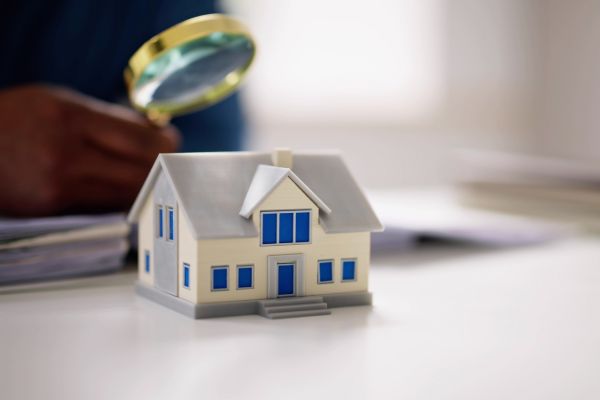Buying or selling a home can feel like a rollercoaster. Just when you think you’re almost done—boom—the home appraisal comes into play. And let’s be real, this part can make anyone a little nervous. Whether you’re a seller hoping for a high value or a buyer praying the price matches the offer, understanding what to expect during a home appraisal can help you breathe easier and feel more in control.
Understanding What a Home Appraisal Really Is
So, what exactly is a home appraisal? In simple terms, it’s a professional evaluation of a property’s market value. Lenders use it to make sure they’re not lending more money than the home is actually worth. The appraiser is a neutral third party—someone who doesn’t care who wins or loses in the deal. Their job is to look at the property, compare it to others nearby, and determine its fair market value.
When you know what to expect during a home appraisal, you can prepare better and avoid surprises later on. It’s not about guessing or opinions—it’s about data, condition, and comparisons.
Why Home Appraisals Matter More Than You Think
Let’s be honest—the appraisal can make or break your deal. For buyers, a low appraisal might mean the bank won’t lend enough, forcing you to renegotiate. For sellers, a low number could mean you need to drop your price or risk losing the buyer altogether.
On the flip side, if the appraisal comes in higher than expected, everyone’s smiling. It validates the sale price and can even build instant equity for the buyer. Knowing what to expect during a home appraisal helps you stay calm and realistic about whatever number comes back.
What Happens Before the Appraiser Arrives
Before the actual appraisal day, the lender typically schedules a licensed appraiser to visit the property. This isn’t a full home inspection—they’re not checking outlets or crawling into the attic—but they will take a close look at the home’s overall condition.
You can expect them to:
- Review recent comparable sales (aka “comps”) in the neighborhood
- Analyze market trends and property data
- Schedule a visit to the home for a visual assessment
If you’re selling, this is your moment to make your home shine. A clean, well-maintained space gives off good vibes—even to a professional appraiser who’s supposed to be objective.
What to Expect During a Home Appraisal Visit
Now, here’s the part everyone wants to know—what actually happens when the appraiser shows up?
The appraiser will typically spend 30 minutes to an hour walking through your home, depending on its size and complexity. They’ll take photos, measurements, and notes about the layout, upgrades, and condition. Expect them to check:
- The number of bedrooms and bathrooms
- Square footage and lot size
- Structural integrity and visible condition
- Materials used (flooring, countertops, roofing, etc.)
- Any upgrades or renovations that could add value
They’ll also step outside to evaluate curb appeal, landscaping, and the neighborhood vibe. And yes, the location still plays a massive role—nearby schools, traffic, and amenities all influence the final number.
How Comparable Sales (Comps) Influence Value
Here’s the thing: even if your home looks stunning, the appraiser won’t just rely on appearances. They’ll compare your property to at least three to six recent sales of similar homes in your area.
These “comps” help determine whether your home’s price is in line with the market. For instance, if three similar homes nearby sold for $400,000, your place probably won’t appraise for $500,000 unless you’ve made some killer improvements.
Understanding what to expect during a home appraisal includes accepting that data and timing matter—recent sales hold more weight than older ones, especially in a shifting market.
Common Factors That Affect Appraisal Value
So, what makes your home worth more (or less)? Here are a few key factors:
- Condition: A well-maintained home gets better marks. Peeling paint and broken tiles? Not so much.
- Upgrades: Kitchen and bathroom remodels often add the most value.
- Location: A quiet cul-de-sac usually beats a busy street corner.
- Market Trends: If prices are dropping in your area, even the best home can be affected.
- Size and Layout: Open, functional spaces tend to be valued higher than awkward floor plans.
Knowing these helps you set expectations realistically and avoid disappointment when the report lands.
What Happens After the Appraisal
After the appraiser finishes, they’ll write up a detailed report. It includes photos, measurements, data from comparable sales, and the final appraised value.
This report goes to the lender—usually within a few days—and becomes a major piece of the puzzle. If you’re buying, the lender uses it to confirm the loan amount. If you’re selling, it validates your asking price.
But here’s where things can get tricky. Sometimes, the number isn’t what anyone hoped for. Don’t panic—it’s not the end of the road.
Dealing with a Low Appraisal
Let’s say the appraisal comes in lower than the agreed sale price. It’s frustrating, sure, but it’s not game over. Here’s what might happen next:
- Renegotiation: The buyer and seller can meet in the middle.
- Appraisal Reconsideration: You can challenge the value by submitting additional comps or proof of overlooked upgrades.
- Higher Down Payment: The buyer can choose to pay the difference in cash.
The key is to stay calm and flexible. Remember, appraisals aren’t perfect—they’re educated estimates based on available data.
Tips to Prepare for a Smooth Appraisal
If you’re selling or refinancing, a little prep goes a long way. Simple things like cleaning up, fixing visible issues, and having documentation ready for upgrades can make a great impression.
It’s also smart to share a list of improvements with the appraiser—new roof, updated HVAC, finished basement—stuff they might not notice right away. It’s not about bragging; it’s about providing accurate information to help them assess fairly.
The Bottom Line
At the end of the day, what to expect during a home appraisal isn’t as mysterious as it sounds. It’s about an unbiased evaluation that ensures the price matches the home’s true value.
Yes, it can feel nerve-wracking, especially when so much is on the line. But if you understand the process, keep your property in good shape, and stay patient, the appraisal can go smoothly—and even work in your favor.
So take a breath, tidy up, and trust the process. Your home’s worth is more than just a number—but knowing that number helps everyone move forward with confidence.







